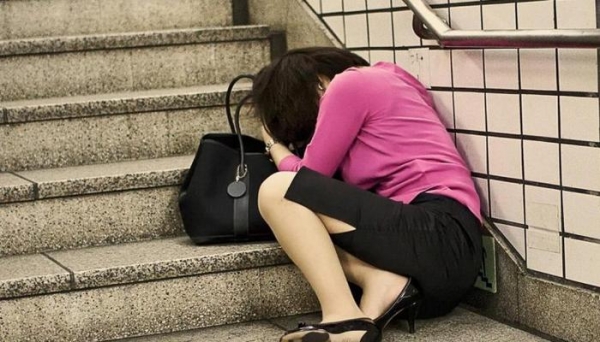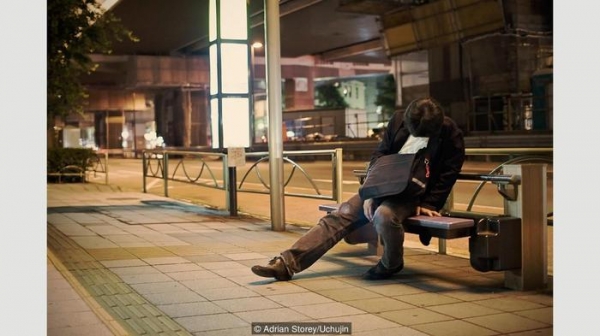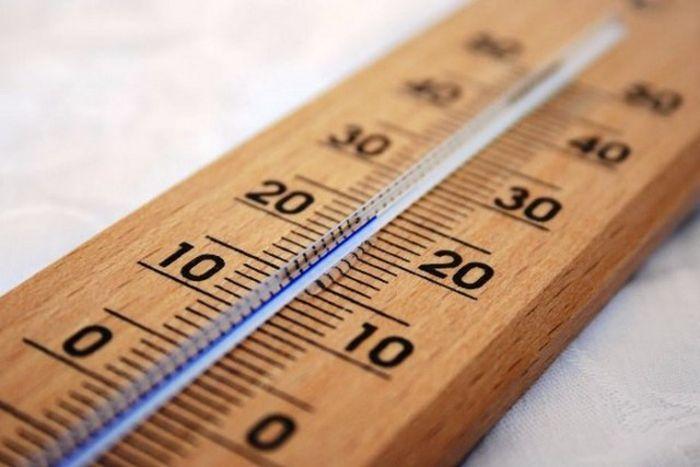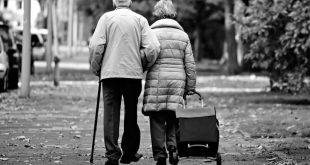matveychevСегодня 22:06 128 4 10.04
“Inemuri” — Japanese art never sleep
 K. T. I.
K. T. I.
Travel Facts
Yandex.Direct

The Japanese never sleep. They practice “inemuri” (translated as “to be present and sleep is a kind of art. This ability to compensate for lack of sleep at work, in transport, in the supermarket, on the street or any other public place.
Doctor, anthropologist Brigitte Steger recalls how, first encountered this phenomenon when I came to Japan in 1980. During this period, the economy of Japan entered a phase of “bubble” is an incredible speculative frenzy. Daily life of the Japanese was the same feverish. People scored their schedule business and personal appointments so tightly that NAP time was no more. Businessmen tried to fight the sleep as much as possible and was proud of these victories.

At this time the Japanese subway was reminiscent of “sleepy — sleepy sluggish streams of people came in wagons, going somewhere and instantly sank to sleep. Some managed to sleep standing up and nobody was surprised.
So, forged a positive image of the Japanese “busy bee”, which neglects a good night’s sleep, do not allow yourself to luxuriate in bed in the morning, but “gets” the lack of sleep using “inemuri” — the ability to NAP at every opportunity: in transport, during business meetings or lectures.
If Japanese man, woman or child suddenly feels the need to sleep ten minutes at any place and any position, he may quiet soul to do it, without fear of dirty looks or judgment.

This curious phenomenon, according to Dr. steeger is a strange contradiction: if the sleep in bed is a sign of idleness, then why sleep in the middle of the day is not perceived as a sign of laziness? What is the point to encourage children to sit in on the lessons until late at night, the next morning, they will sleep in the classroom?
But that’s not the only oddity concerning sleep Japanese.

As you know, in many countries, the parents almost from birth children are taught to sleep alone – each offspring has its own room and a strict schedule of sleep and wakefulness. The Japanese have a completely opposite approach. Here both parents and doctors are convinced that at least to school age children should sleep alone to grow up independent and socially successful adults. Perhaps this is partly why many Japanese adults admit that they feel more comfortable sleeping in the presence of others than alone.
In addition, in some sense, inemuri – this is not a dream. He is very much different from a normal night’s sleep in bed and an afternoon NAP. The trick lies in the term. It consists of two opposite, it would seem, within the meaning of the words: “and” means “be present” and “nemuri” means “to sleep”.

All of us know this situation: we are physically present at some meeting (lectures, meetings), but the thoughts are somewhere far away, immersed in a warm sea, compose the menu family dinner). We feel that nothing is very important to us at this time is not happening and always ready to “down to earth” when you need it. Approximately the same happens with sleeping during the working meetings with the Japanese. They are physically present, albeit in an unconscious condition and always if necessary, can be included in the work. In addition, the meetings often take a few hours and are listening to boring reports.
And if people came to the meeting despite the extreme fatigue – it means that he is very responsible and deserves respect. So let him sleep.
testore.me
 matveychev
matveychev







